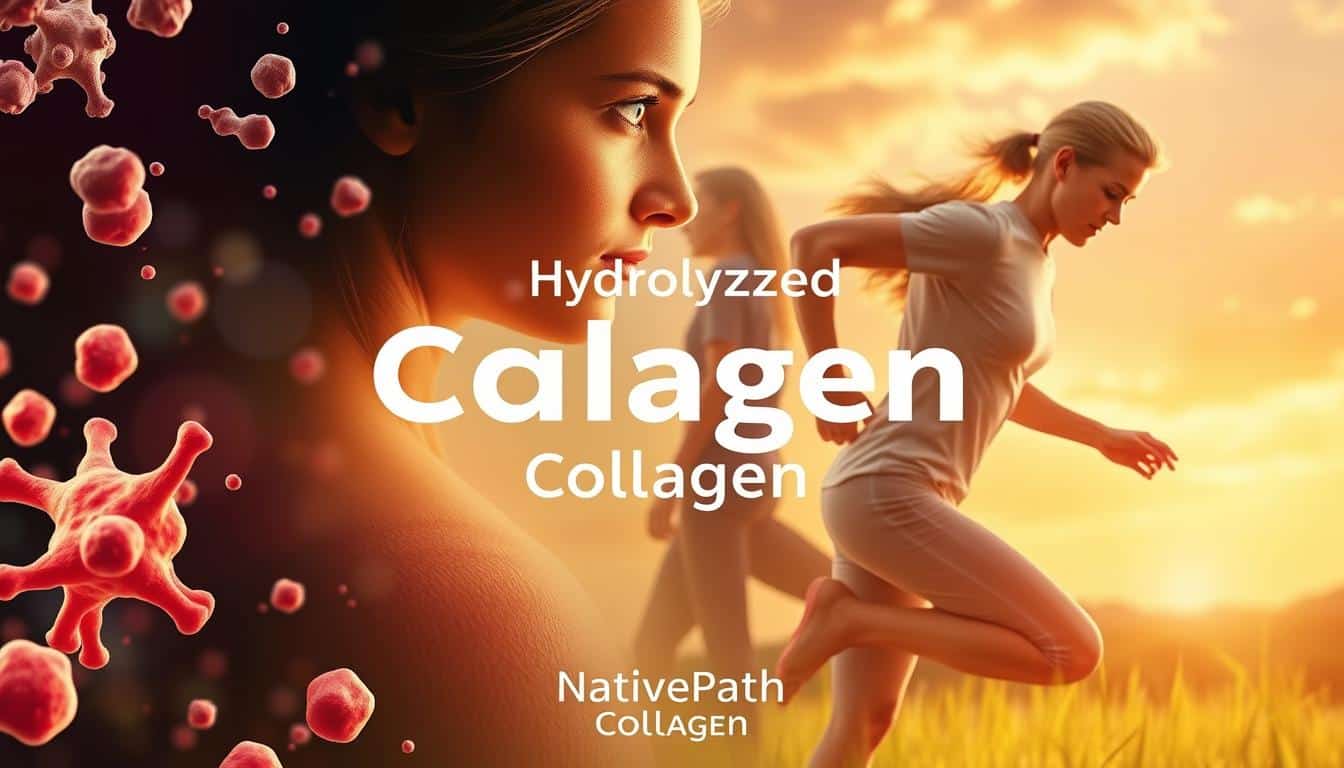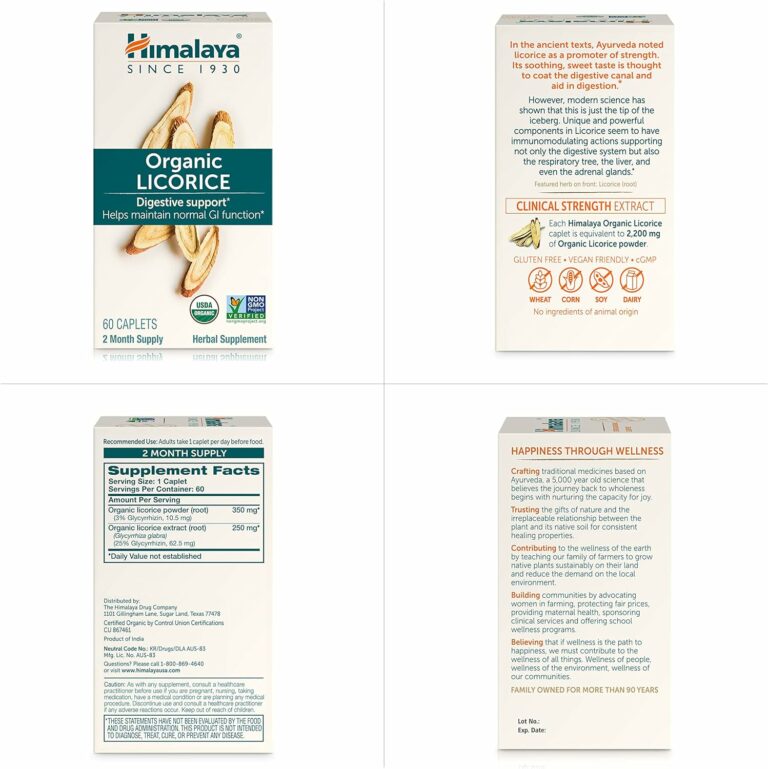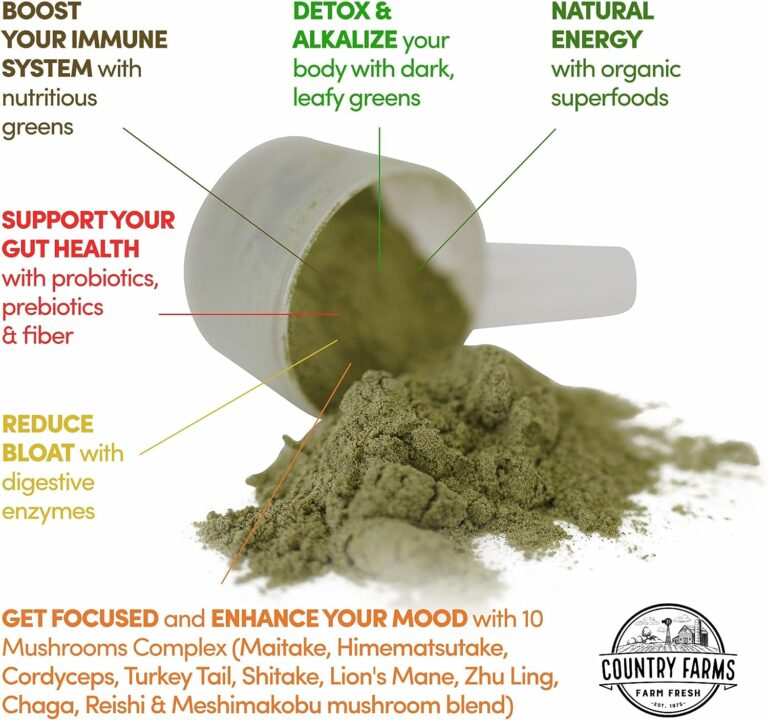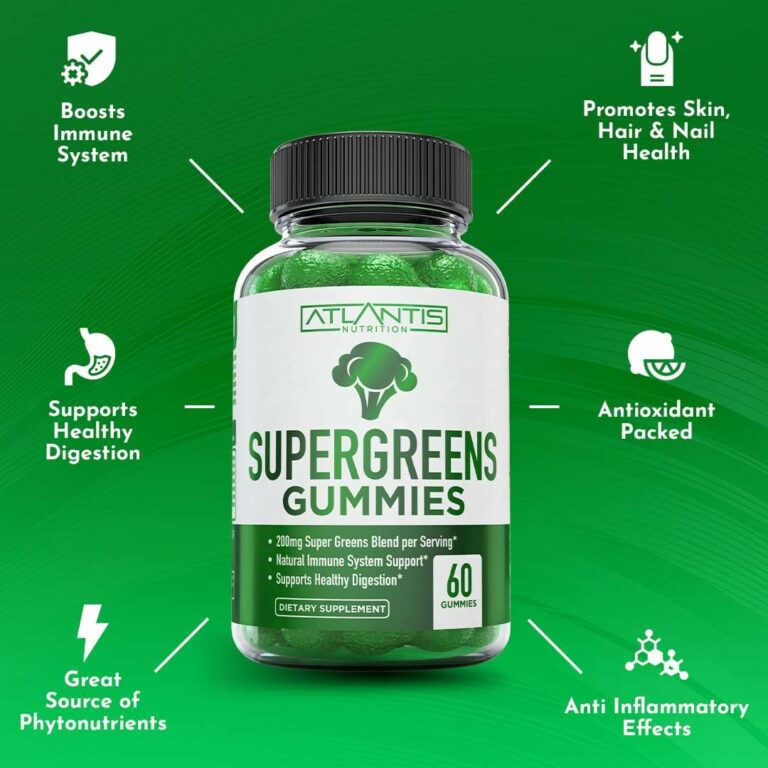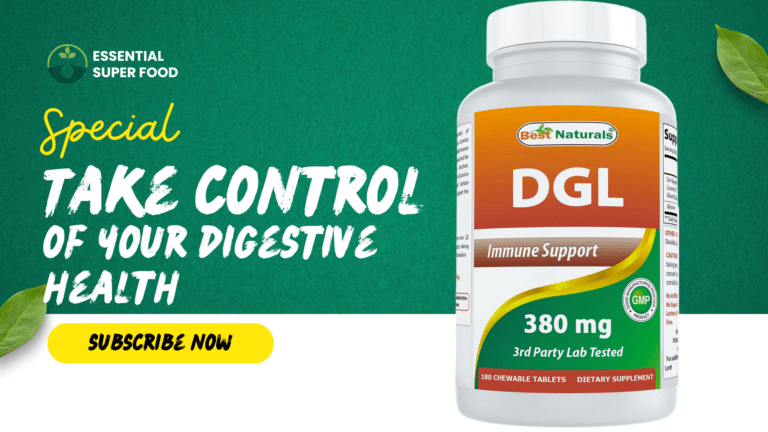Hydrolyzed Collagen: Benefits for Skin and Joints
As we get older, our bodies change. We look for ways to stay young and feel good. Hydrolyzed collagen is a powerful help in our search for wellness.
This protein is key for healthy skin and joints. But, our bodies make less of it as we age. By our 30s, we start losing 1%-2% of collagen each year.
This loss can cause wrinkles and joint pain. But, what if we could add back this important protein?
Hydrolyzed collagen supplements are a possible answer. They help our skin and joints. Over 250,000 people say they feel better after taking them.
We’ll look into how hydrolyzed collagen works. It might help us look and feel younger. It promises smoother skin and more comfortable joints, and science is backing it up.
Key Takeaways
- Hydrolyzed collagen supplements may help combat age-related collagen loss
- Benefits include improved skin elasticity and possible joint pain relief
- Over 250,000 users report positive outcomes from collagen supplementation
- Collagen production decreases by 1-2% annually starting in our 30s
- Grass-fed bovine sources provide both Type I and Type III collagen
- Combining collagen with Vitamins C and E may enhance skin benefits
- Unflavored collagen powder can be easily added to drinks or meals
What is Hydrolyzed Collagen?
Hydrolyzed collagen, also known as collagen peptides, is a popular supplement. It helps our bodies make more collagen. This is good for our skin, joints, and health.
Definition and Production Process
It comes from animals like cows or fish. The process called hydrolysis breaks it down. This makes it easy for our bodies to use.
Types of Collagen
There are many collagen types in our bodies. The most common in supplements are:
- Type I: Found in skin, bones, and tendons
- Type II: Present in cartilage
- Type III: Common in skin and blood vessels
Premium Collagen Peptides, rated 4.74/5 by 489 customers, mix these types. Each sachet has 15 grams of hydrolyzed bovine collagen peptides. It works well with 15-30 grams a day.
How It Differs from Other Supplements
Unlike whole collagen, hydrolyzed collagen dissolves in liquids. This makes it easy to add to foods and drinks. It’s also better for our bodies to use.
“I’ve been using this collagen powder for months, and it’s made a noticeable difference in my joint pain and skin texture. It’s so easy to add to my morning smoothie!”
Hydrolyzed collagen helps with skin and joint health. It’s a great supplement for better health and well-being.
Benefits for Skin Health

Many people search for ways to keep their skin young. They find that anti-aging collagen is key. As we get older, our bodies make less collagen, showing signs of aging. But, there’s good news! Science has found ways to help our skin through collagen.
Enhancing Skin Elasticity
Collagen is important for skin that looks young and bouncy. Studies show that taking collagen peptides can help our skin stay firm. Nature’s Farm Collagen Hero has 5800mg of marine collagen peptides to help with this.
Reducing Wrinkles and Fine Lines
Using collagen supplements regularly can help with wrinkles. Research shows that after a few weeks, people see better results. These supplements help our bodies make more collagen and other important skin molecules.
Hydration and Skin Glow
Collagen does more than fight wrinkles. It also helps keep our skin hydrated. A study found that users had much higher skin moisture levels than non-users. This makes our skin look healthy and shiny.
“Collagen supplementation has been a game-changer for my skin. It feels more hydrated and looks noticeably plumper.”
While creams might not work well, oral supplements are a better choice. Adding vitamin C to these supplements can make them even more effective. They are a great addition to your skincare routine.
Benefits for Joint Health
Collagen is very important for our joints. It helps those with joint problems. As we get older, our body makes less collagen. This affects our skin and joints.
This change starts when we are about 30 years old. So, taking collagen is very important.
Supporting Joint Lubrication
Collagen helps keep our joints moving smoothly. It’s a big part of cartilage. Cartilage cushions our joints.
Collagen helps keep this cushioning right. This is great for athletes. They put a lot of stress on their joints.
Reducing Joint Pain and Inflammation
Research shows collagen can lessen joint pain and swelling. This is true for people with osteoarthritis. Type II collagen is best for this.
| Collagen Type | Primary Function | Benefits for Joints |
|---|---|---|
| Type I | Skin, bones, tendons | Supports overall joint structure |
| Type II | Cartilage | Enhances joint cushioning |
| Type III | Muscles | Supports joint flexibility |
Experts say to take 2.5 to 15 grams of collagen each day. Being consistent is very important. Most people feel better in three to six months.
“Collagen supplementation has been a game-changer for my joint health. After about four months of daily use, I noticed a significant reduction in my knee pain during runs,” shares a marathon runner who incorporated collagen into her routine.
Results can differ, but many feel their joints are stronger. They also notice better muscle maintenance and more mobility. Always talk to a doctor before starting any new supplement.
The Science Behind Hydrolyzed Collagen

Collagen research shows us how amazing this protein is. It has a big molecular weight of 285,000. It’s made of three parts, each 95,000.
Its chains are very long, stretching 2,900 angstroms. They are also very thin, just 15 angstroms wide. Proline and hydroxyproline are special parts of collagen. Hydroxyproline is found in collagen and elastin.
How Hydrolyzed Collagen Works in the Body
When we eat hydrolyzed collagen, it breaks down into amino acids. These are glycine, proline, and hydroxyproline. They go into our blood and help our body.
They make our skin elastic, help our joints, and strengthen our bones. But, collagen doesn’t have cystine or tryptophan. So, it can’t replace all other proteins we eat.
Research Studies and Findings
Studies on collagen show it’s good for us. A review found that collagen supplements are safe. They make our skin better, more hydrated, and denser.
They also help our bones, which is great for women after menopause. Their bones are often weaker.
| Collagen Type | Primary Location | Potential Benefits |
|---|---|---|
| Type I | Skin, teeth, bones, tendons | Skin elasticity, bone strength |
| Type II | Cartilage | Joint pain relief |
| Type III | Dermis | Skin health |
| Type IV | Kidneys, lungs, intestines | Organ support |
| Type V | Hair, cell surfaces | Hair strength |
People take 2.5 to 15 grams of collagen every day for 8 to 12 weeks. They say it makes their skin, hair, and joints better. More studies are needed, but so far, it looks good for our health and looks.
How to Incorporate Hydrolyzed Collagen into Your Diet
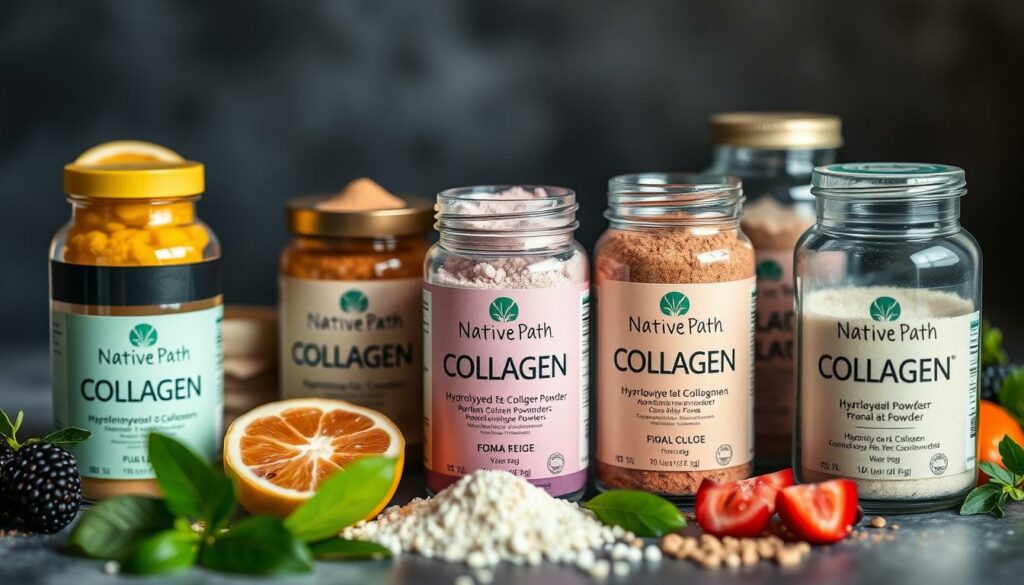
Hydrolyzed collagen is like a magic potion. It makes wrinkles less visible, eases joint pain, and helps bones stay strong. As we get older, our bodies make less collagen. That’s why taking supplements is a good idea.
Popular Forms and Products
Collagen protein is available in many ways:
- Collagen powder: Easy to mix into drinks or food
- Liquid collagen: Ready-to-drink options
- Capsules: Convenient for on-the-go use
Collagen powder is super easy to use. You can mix it into smoothies, coffee, or even baked goods. There are both unflavored and flavored options to choose from.
Recommended Dosages
The right amount of collagen depends on what you want to achieve:
| Goal | Daily Dosage | Time to See Results |
|---|---|---|
| Reduce wrinkles | 2.5-5 grams | 8 weeks |
| Relieve joint pain | 10-15 grams | 3-6 months |
| Improve bone strength | 5-10 grams | 12 months |
It’s important to take collagen every day for the best results. Pick a dosage that fits into your daily routine. Collagen powder has about 12 grams of protein per serving. It’s quickly absorbed by your body.
Hydrolyzed Collagen vs. Other Supplements
The world of collagen supplements can be confusing. There are many types, and it’s important to know the differences. This section will look at the main types and compare their benefits.
Comparing Collagen Types
Collagen supplements come in different forms. Each has its own special properties. Marine collagen, from fish, is full of Type I collagen and is easily absorbed.
Bovine collagen, from cows, has Types I and III. It helps with skin and muscle health. A comparison shows hydrolyzed forms are more easily used by the body than undenatured types.
| Collagen Type | Source | Primary Benefits |
|---|---|---|
| Type I | Marine, Bovine | Skin elasticity, hair, nails |
| Type II | Chicken | Joint health, cartilage support |
| Type III | Bovine | Skin, muscles, blood vessels |
Pros and Cons of Each Type
Marine collagen is great for skin because it’s absorbed well. Bovine collagen has more types but might not be good for those who don’t eat beef. Multi-collagen blends offer many benefits but cost more.
When picking a supplement, think about your health goals and what you eat.
The FDA doesn’t strictly check supplements. Always talk to a doctor before trying a new supplement. It’s important to choose high-quality products from trusted brands. Look for ones that have been tested by third parties to make sure they are pure and strong.
Potential Side Effects and Considerations
Collagen supplements have many benefits. But, it’s important to know about possible side effects. This knowledge helps keep you safe and makes smart health choices.
Allergies and Sensitivities
Some people might have allergies to collagen. This is more common in those allergic to certain proteins. If you’re allergic to fish or shellfish, be careful with marine collagen. Also, egg allergy sufferers might react to collagen from eggshells.
Common side effects include:
- Mild digestive discomfort
- Headaches
- Skin rashes
- Unpleasant aftertaste
Recommended Precautions
To stay safe, follow these steps:
- Talk to your doctor before taking collagen supplements. This is true if you’re pregnant, nursing, or have health issues.
- Start with a small dose and slowly increase it. This helps you see how your body reacts.
- Choose products that have been tested by third parties. This lowers the chance of harmful contaminants.
- Remember, collagen isn’t for vegetarians or vegans.
Most people find collagen supplements safe. But, everyone reacts differently. Being aware of possible side effects and taking precautions helps you enjoy collagen’s benefits safely.
| Collagen Source | Potential Allergens | Dietary Considerations |
|---|---|---|
| Bovine | Beef allergies | Not suitable for vegetarians/vegans |
| Marine | Fish, shellfish allergies | Not suitable for vegetarians/vegans |
| Porcine | Pork allergies | Not Kosher/Halal |
| Eggshell membrane | Egg allergies | Not suitable for vegans |
Best Practices for Purchase and Use
Choosing the right collagen supplement can be tricky. With so many options, it’s important to know what to look for. This ensures you get a quality product. Let’s explore the key factors for making an informed decision.
What to Look for in Quality Products
When shopping for collagen supplements, quality should be your top priority. Look for products with hydrolyzed collagen. This is broken down into smaller peptides for better absorption.
Choose reputable brands that source their collagen from grass-fed bovine or wild-caught marine sources.
Third-party testing is also key. Certifications from NSF or USP show the product has been tested for purity and potency. This step ensures you get a high-quality supplement without contaminants.
Reading Labels and Ingredients
Understanding supplement labels is important for making a good choice. Check the type of collagen used. Type I and III support skin, hair, and nails. Type II is for joint health. The daily dose is usually 5-10 grams per serving.
Look at the additional ingredients. Some products have vitamin C to help with collagen making. Avoid artificial additives or fillers. The best choice is clean formulas with pure collagen peptides.
| Collagen Type | Primary Benefits | Source |
|---|---|---|
| Type I | Skin, hair, nails, bones | Bovine, Marine |
| Type II | Joint health | Chicken |
| Type III | Gut health, muscle structure | Bovine |
Remember, a high-quality collagen supplement can greatly benefit your health. Focus on quality, understand labels, and check for third-party testing. This will help you find a product that meets your needs.
Age-Related Collagen Loss
As we get older, our bodies make less collagen. This starts in our 30s. We lose collagen at a rate of 1-2% each year. This loss shows in how we look and feel.
Understanding the Aging Process
Collagen is a big part of our bodies. It makes up about 30% of our proteins. When we age, our skin loses its firmness and starts to wrinkle.
Preventative Measures
We can’t stop aging, but we can help our bodies. Here’s how:
- Eat foods full of vitamin C and amino acids to help make collagen
- Exercise often to keep your skin and body healthy
- Stay out of the sun to prevent damage to your skin
- Try collagen supplements to help replace what’s lost
Research shows that taking collagen supplements can help. Some people see their skin get better and their joints feel less pain. But, everyone is different. Supplements are just one part of staying healthy as we age.
Real-Life Success Stories
Collagen supplements are popular for their benefits on skin, hair, nails, and joints. Many people share their good experiences with these supplements. They talk about their results and how they feel.
Testimonials and Personal Experiences
Many people say they feel better after taking collagen. One person said collagen peptides made their skin more hydrated and their neck less stiff. Another person noticed their hair grew healthier and their nails got stronger after using collagen.
Case Studies of Users
Studies show collagen helps many people. A study on active men found collagen improved their sleep. They woke up less during the night.
Another study was on middle-aged, active people. After 6-9 months of taking collagen, they felt:
- Less pain when they were active
- They could do more things
- They felt better physically and mentally
These stories show how collagen can help with health and wellness. While everyone is different, many people find collagen helpful. It can be a good addition to their health routine.
Conclusion: Is Hydrolyzed Collagen Right for You?
Hydrolyzed collagen has many benefits for our skin, joints, and health. It helps keep our bodies working well. But, our bodies make less of it as we get older.
Summarizing the Benefits
Collagen supplements can make our skin look better and our joints feel good. They can also make our hair and nails stronger. Plus, they help build muscle and keep bones strong.
These benefits are great for people over 30, athletes, and women going through menopause.
Final Thoughts on Using Hydrolyzed Collagen
Think about what you want to achieve with supplements. Remember, it takes 8-12 weeks to see results. Taking collagen with vitamin C can make it work better.
Always talk to a doctor before starting any supplement. This is true if you have health issues or eat very little protein.

